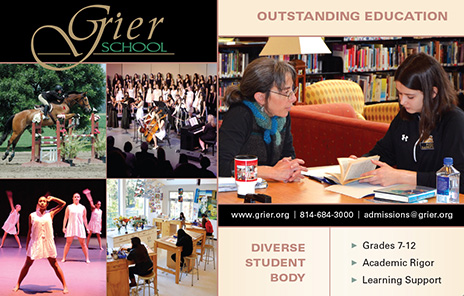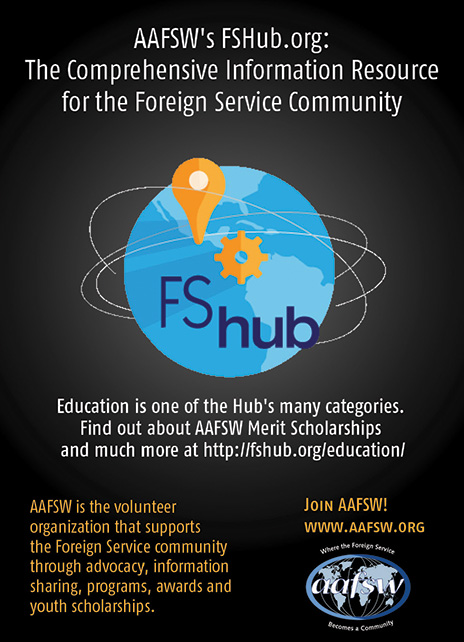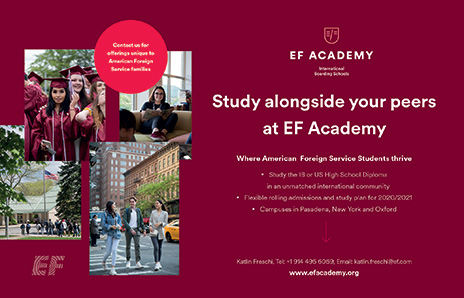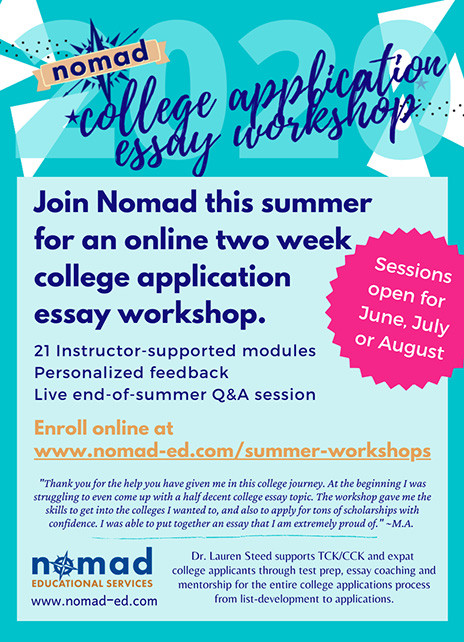Can You Really Write All of Your College Application Essays Over the Summer?
Get a jump start on a critical part of the college application process.
BY FRANCESCA KELLY
Right now, halfway around the globe, an American high school junior is gearing up for the U.S. college admissions process. Let’s give her the way-too-peppy name of Rachel Resilient.
Rachel isn’t sure what she wants to major in, but she’s interested in history, psychology and biology.
Since her parents have established residency in Virginia*, she will apply to state institutions, such as the University of Virginia (UVA), William & Mary and George Mason University. She has close relatives in the New York area, so she’s added New York University, Barnard, and Drew University in New Jersey.
And, although she’s never visited the campus, she’s included the University of Michigan, as well as two small Midwest liberal arts colleges that are generous with financial aid: Knox College in Illinois, offering a high percentage of international students, and Denison University in Ohio, her mom’s alma mater.
Her counselor also suggests the University of Mary Washington, another Virginia public school, because it’s close to D.C. and requires no supplemental essays. Rachel adds it to her list.
Rachel enlists her friends and family to help her brainstorm topics for the main essay.
Rachel has set a lofty goal: to finish all her college admissions essays by the end of summer. Taking time off for a two-week trip to the States, that gives her roughly six weeks to write—not a lot of time when applying to 10 colleges. Rachel’s counselor has urged students to break the process down into steps and then calendarize those steps. And, most important, complete the tasks written in the calendar!
First, Rachel makes a list of the tasks in the order in which she will accomplish them. Then she counts backward on her calendar from the start of senior year. She ends up with this:
June 29-July 4: List all essays and due dates, group essays with similar prompts, and brainstorm topics (1 week).
July 5-18: Write main essay (almost 2 weeks).
July 19-Aug. 3: Vacation (2+ weeks).
Aug. 4-23: Write supplemental essays (almost 3 weeks).
Aug. 24: Start of school.
Notice that the supplemental essays are last on her to-do list. That’s because while all her colleges require a main essay, not all require supplemental essays. But there’s another reason to leave these until the end of summer: colleges may not post their supplemental essay prompts until August. (That said, many will stay the same for 2020-2021, including the Common Application main essay prompts.)
Can she do it?
Gathering the Necessary Information
Rachel takes a few days to relax after completing 11th grade before creating a spreadsheet listing her colleges. She then uses both the Common App and individual colleges’ websites to find guidelines, deadlines and essay prompts. If Rachel has established a relationship with a college admissions representative, she will ask if supplemental essay prompts for next season will change. If she hasn’t been in touch with a rep, she will use this year’s prompts as a guide.
Good news: Every one of her colleges takes the Common App, which will streamline the process. Now she has a list that looks like this:
- UVA (Deadlines: Early Action (EA) Nov. 1) Common Application (CA) main essay, plus two supplements: one about community (from a choice of four prompts), and one for the College of Arts and Sciences about a favorite work of art, literature, etc.
- William & Mary (No EA; Regular Decision (RD) Jan. 1) CA main essay, plus supplement about what makes you unique.
- George Mason (EA Nov. 1) CA main essay, plus Honors College supplement about favorite literature.
- University of Mary Washington (EA Nov. 15) CA main essay.
- University of Michigan (EA Nov. 1) CA main essay, plus three supplements: Community, Activity, “Why Michigan?”
- NYU (RD Jan. 1) CA main essay.
- Barnard (RD Jan. 1) CA main essay, plus “Why Barnard?” and “Converse with a woman from history.”
- Drew (EA Dec. 15) CA main essay.
- Denison (RD Jan. 15) CA main essay.
- Knox (EA Dec. 1) CA main essay.
Notice that Rachel will be applying Early Action where it’s offered. (She cannot afford to apply Early Decision because her family needs to compare financial aid offers.) She intends to submit all applications by Oct. 15, even those that aren’t due until January. That will allow her to focus on academics and enjoy the holidays.
She’s also heard that the Common App website can get slow around deadlines. And because her grades and scores are strong, and she’s already asked two teachers for letters of recommendation, there’s no reason not to apply early.
To her surprise, it takes Rachel more than a week to obtain all the data and organize these lists, and now she wishes she had started working on this during the last week of school.
While students should never go over a word limit, they can be well under it if the essay is cogent and well written.
What Exactly Will Rachel Have to Write?
Now Rachel goes through her colleges’ essay prompts and groups similar essays together to come up with a list of what she has to write.
Some colleges don’t require supplemental essays at all: Mary Washington, NYU, Drew, Denison and Knox. She finds reassurance in the knowledge that if for some reason—say, a global pandemic—she cannot finish all of the supplemental essays, at least she can easily apply to five great schools by writing just one main essay.
Finally, Rachel has a detailed list to work from. For similar categories of essays, Rachel plans to write one rough essay, then tweak it for different colleges.
Brainstorming the Main Essay Topic
- Main essay for the Common App of up to 650 words.
- “Why This College?” essay (Michigan, 550; Barnard, 250).
- “Community” essay (UVA, Michigan; both 250-300).
- “Favorite work of literature” essay (UVA, 250-300; George Mason, up to 750).
- “Extracurricular activity” essay (Michigan, 150).
- Unique essay: “What makes you unique and colorful?” (William & Mary, 500 words).
- Unique essay: “What woman in history would you converse with, and about what?” (Barnard, 250 words).
Rachel tackles the main essay first. She enlists her friends and family to help her brainstorm topics for it. The result is a list of possible ideas:
- The story of when Rachel and a friend got lost on a hike and how they got back to safety.
- The family dogs Rachel has rescued/adopted in different countries.
- Homeschooling during the COVID-19 pandemic.
- How Rachel ended up backstage with Maroon Five.
- Rachel’s lifelong passion for basketball.
- Handling the loss of her grandmother from overseas.
She decides against the “getting lost” story, as it happened when she was 8; although if she could find a metaphoric connection with feeling lost and found when moving to different countries, it could work. Likewise, she was 10 years old when Maroon Five came to the Dominican Republic, where her dad was the cultural attaché. The story’s tone feels too “privileged,” with no real lesson learned; and colleges prefer more recent experiences anyway.
Homeschooling during COVID-19? No; probably every teenager in the world will write about that this season. The sorrow of being far away when her grandmother died? She feels sad even thinking about it, making her reluctant to write; and even stateside kids have lost faraway grandparents.
What about her lifelong love of basketball? Rachel has won numerous awards and intends to play at the intramural level in college. She decides that would make a better topic for Michigan’s “extracurricular activity” essay.
That leaves dogs. Rachel, a devoted dog-lover, has volunteered at rescue organizations in three different countries, and—surprise, surprise—the family has ended up adopting three dogs. Rachel could write the story of adopting each dog and how important volunteering was to her, while throwing in colorful details that illustrate her familiarity with each country. Perhaps most important, this is an essay Rachel can’t wait to write.
But first, she needs to brainstorm topics for the supplemental essays to make sure no topics overlap.
Sorting the Supplemental Essays
Word limits vary widely on supplemental essays, so Rachel may have to expand or contract an essay when tweaking it for different colleges. While students should never go over a word limit, they can be well under it if the essay is cogent and well written. In fact, most admissions officers prefer a shorter, tightly constructed essay over one that’s longer but rambling.
Why this college? Rachel will write about her passion for history in the first part of this essay, setting a descriptive scene about how she became fascinated with the ancient world upon encountering Cleopatra’s Baths off the Aegean Coast of Turkey.
She will tailor the second half of the essay to each college, naming specific classes, professors, etc., where she can develop her interest in history further. Barnard wants 250 words, and she’ll expand the essay for Michigan. Because Rachel is still undecided about her major, she will also mention a few classes she’s excited about in subjects other than history.
For more detailed advice on writing the “Why This College?” essay, visit https://afsa.org/why-college-essay.
Rachel gets some feedback on her main essay from a trusted family member. (Having too many editors can get confusing and dilute the writer’s voice.)
Community. Rachel decides to write about her local and global communities of Third Culture Kids. To be able to tweak this essay for several colleges, Rachel will write about her most meaningful community in the first half of the essay, and then gear the second half to each college. Because UVA and Michigan request similar word counts, she will not have to adjust these for length.
She will start the essay with a snapshot of a children’s Halloween party that she and other embassy teens organized, then discuss being a volunteer monitor for an online local TCK community. She’ll end with her plan to forge new bonds with other international kids, mentioning specific clubs or houses at each university.
Rachel now realizes she should do more research on her colleges. She will need to find specific classes to cite, professors she’s familiar with, and extracurriculars she will take part in. She will try to fit this research in while traveling.
Favorite work of literature. UVA’s College of Arts and Sciences asks for a surprising work of art, literature, etc., and George Mason wants to hear about the most compelling work you’ve read. Rachel chooses her favorite book, Catch-22 by Joseph Heller. If she writes 500 words—well under the limit for GMU, but fine for a tightly written essay—it will be easier to shorten the same essay for UVA. She digs out a paper she wrote on this book, but she’s aware that most colleges do not welcome academic writing, so the paper will mostly serve as inspiration.
Extracurricular activity. Rachel will write 150 words for Michigan about her love of basketball and her growing leadership experience (she’s now team co-captain), focusing on engendering a sense of mission and camaraderie.
The two “unique” essay prompts are already fairly well defined, so Rachel doesn’t need further brainstorming on them at this stage.
Writing the Main Essay
Now that the essay topics are all spelled out, Rachel can get down to writing the main essay. She starts by creating a paragraph structure, with an opening hook:
- Vignette of her three very different dogs playing together; how their lives have changed.
- Background of her interest in volunteering for dog rescue organizations; why she cares.
- The differences and similarities between the three shelters/countries.
- How her responsibilities grew as she grew older, and what she learned.
- Back to her dogs: how they are her family’s “newest Americans,” yet remind her of the countries they came from and inspire her to continue helping the world’s street dogs.
Time is now running short before vacation. Rachel crafts a rough draft in a couple days’ time, then hones it over two more days. Finally, she gets some feedback from a trusted family member. (Having too many editors can get confusing and dilute the writer’s voice.)
In about 10 days, Rachel is done with her main essay. Because she was enthusiastic about the topic and created a structure before starting to write, it wasn’t as difficult as she’d anticipated.
Back from R&R with Two Weeks to Go
After returning from vacation, Rachel finds herself jet-lagged, distracted by friends and uninspired. Finally, she checks the Common App to make sure supplemental essay prompts have not changed, then gets to work. She plans to write each morning and see her friends in the afternoon only if she has made real progress on her essays that day.
This is easier said than done. By three days before the start of school, she’s still behind. She might save Michigan’s application for later …
She now has a short draft of the “Why This College?” essay for Barnard and a Community essay for UVA; if she has time, she’ll tweak them later for Michigan. She doesn’t even start the basketball essay for Michigan now. But she does complete very rough drafts of the Catch-22 essays for UVA and George Mason.
After returning from vacation, Rachel plans to write each morning and see her friends in the afternoon only if she has made real progress on her essays that day.
Now school is starting, and she hasn’t even begun the unique essay for William & Mary or the conversation with a historical woman for Barnard. She considers dropping her application to Barnard but has a flash of inspiration during a study hall, envisioning herself sitting at a Jerusalem café asking Golda Meir questions about the call of leadership.
Rachel hates the William & Mary prompt about what makes her unique, but the college is one of her top choices. She procrastinates for another week, knowing the application isn’t really due until January. But she’s mighty tired of the college application process and realizes she wants it to be over. Rereading the prompt, she notices W&M’s encouragement to “make us laugh.”
Rachel’s sense of humor is her signature; like her favorite character Yossarian, she sees absurdity in everything. Could she tweak some of her Catch-22 essay to write about humor under pressure? She’d have to use examples that show this trait, rather than simply insist she’s funny, which isn’t effective.
She casts her mind back to 2016, when her family ran out of toilet paper in a country with continual shortages, and how she and her sister giggled while gathering gingko leaves as a possible substitute. She laughs about stateside cousins freaking out over bathtub centipedes, when she has experienced a botfly larva growing under her skin. Soon she has enough to construct an essay that shows a completely different side of her. She may even send this essay to any of her colleges that accept additional materials.
In the end, Rachel doesn’t finish all her essays by the start of school. Remember that her list was ambitious, with quite a few supplementals, and her momentum was disrupted by vacation. As her schedule grows heavier, she ends up taking Michigan off her list.
But here’s the main thing: she finishes most of her drafts by the end of September, then spends the next few weekends polishing them up. By mid-October, she’s ready to submit her college applications—and get on with her life.
*Please review state laws regarding residency for Foreign Service families that have been posted overseas. Some states make it difficult for nonresidents to qualify for in-state tuition, even if they own property and pay taxes there. It is wise to determine eligibility well before the college application process.
Read More...
- “The ‘Why This College?’ Essay” by Francesca H. Kelly, FSJ, June 2019
- “Get a Head Start on the College Admissions Process” by Francesca Kelly, FSJ, December 2018
- “Finding Money for College: A Guide to Scholarships” by Francesca Kelly, FSJ, December 2016












